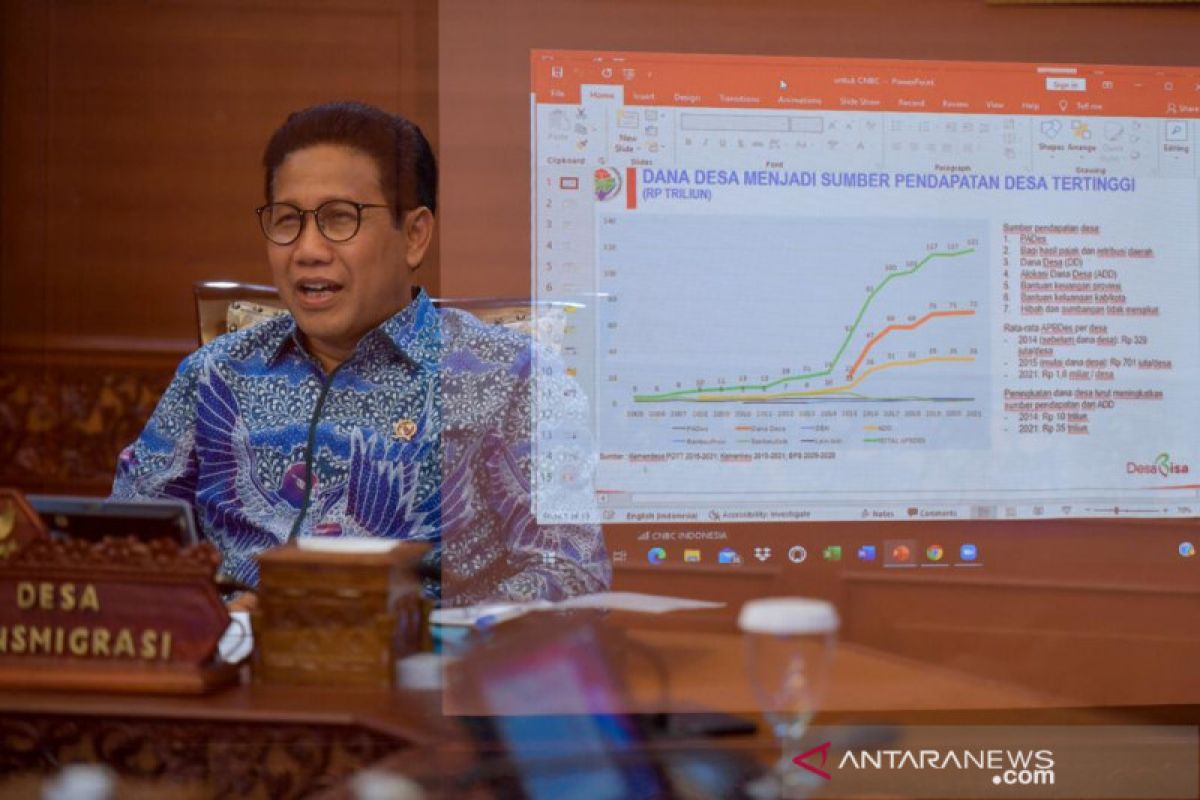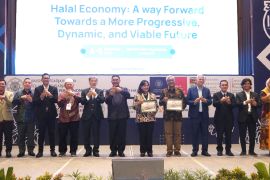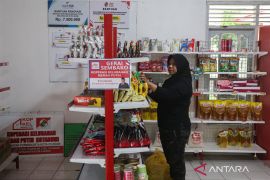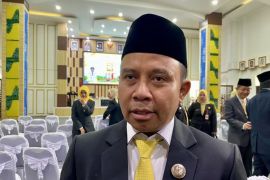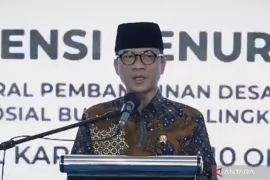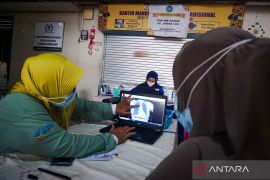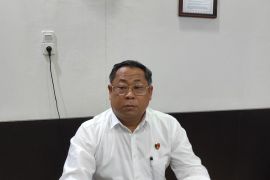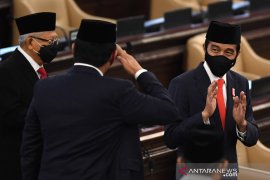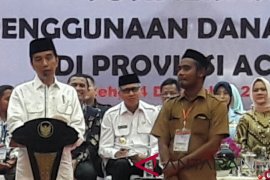It must be admitted that the village economy has been able to support the national economyJakarta (ANTARA) - Villages, Disadvantaged Regions Development, and Transmigration Minister Abdul Halim Iskandar assessed that villages were able to support the national economy amid the COVID-19 pandemic.
"It must be admitted that the village economy has been able to support the national economy," Iskandar noted in a written statement here on Friday.
One of the factors that support the village economy’s resilience during the pandemic is the continued increase in village funds from year to year. This village funding is the primary backing for the village budget (APBDes).
Related news: Village funds helping reduce poverty, employment rates: BRIN
The Village Fund Program existed in 2014 or before, with the average village budget per village reaching Rp329 million. In 2015, when the Village Fund was disbursed, the village budget increased to Rp701 million per village. In 2021, the average village budget jumped to Rp1.6 billion per village.
“Amid the pandemic, APBDes continued to increase, from a total of Rp117 trillion in 2019 to Rp121 trillion in 2021,” Iskandar noted.
The minister pointed out that the high amount of village funds had reflected positively on several essential sectors that support the national economy.
For instance, during the pandemic, the villagers' income had increased, from Rp882,829 per capita per month to Rp971,445 per capita per month.
"This increase in the villagers' income is partly due to the Padat Karya Tunai Desa (PKTD) program during the pandemic," he pointed out.
Related news: 71.44% village funds disbursed to tackle poverty: minister
The requisite material for various village-level infrastructure projects are procured from local sellers and local residents are employed in the projects, he stated.
Thus, the minister noted that the project had helped to bring under control the unemployment in villages.
According to Iskandar, during the COVID-19 pandemic, the open unemployment rate in villages had remained low and only rose, from 3.92 percent to 4.71 percent.
Economic inequality in villages also remained low and continued to be evenly distributed.
"This means the village economy remains positive and also serves as a form of support for the national economy during the COVID-19 pandemic from 2020 to 2021," he affirmed.
Related news: Jakarta reports highest count of COVID-19 daily cases nationwide
Related news: Jakarta air quality improves noticeably with fewer unhealthy days
Translator: Zubi Mahrofi, Raka Adji
Editor: Fardah Assegaf
Copyright © ANTARA 2021
